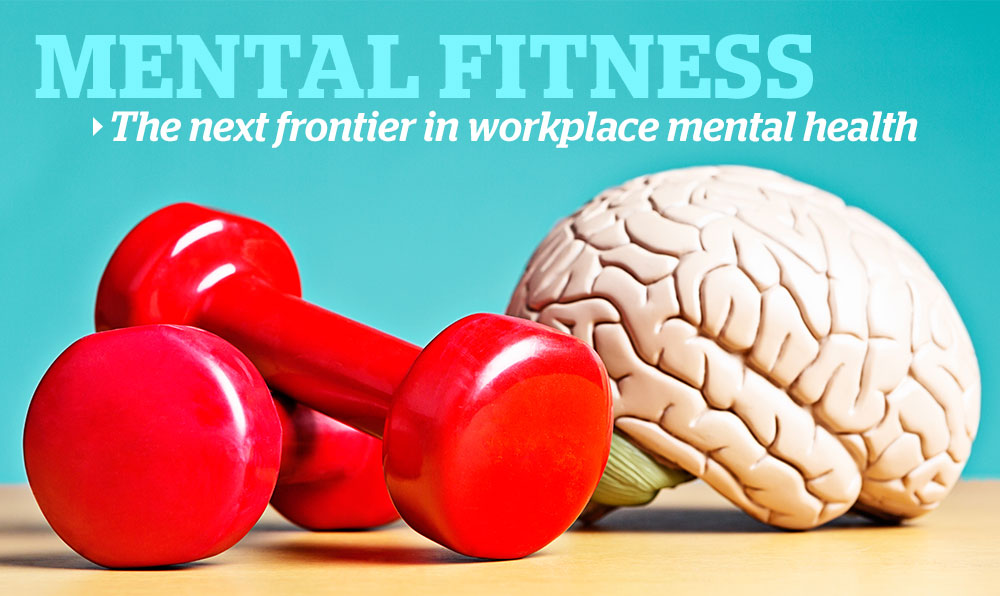

Columns/Blogs
Features
Employee Wellness
Mental Health
Mental fitness: Focused attention can change your mood on demand
By Bill Howatt

EDITOR’S NOTE: ‘Mental Fitness: The next frontier in workplace mental health’ is a weekly series, in partnership with Dr. Bill Howatt of Howatt HR Consulting in Ottawa. This series takes a deeper look at mental fitness — an approach to prevent mental harm and promote mental health.
“What we focus on tends to expand and become dominant in our mind’s eye.” – Dr. Bill Howatt
How often do you find yourself feeling stuck in unpleasant (negative) emotions?
Emotional well-being can be predicted by the percentage of time you experience unpleasant emotions compared to pleasant ones. It’s helpful for your emotional well-being to understand that all emotions are transient, and you will never have 100 per cent pleasant emotions.
The microskill of focused attention enables you to direct your attention to change your mood on demand. Where your mind is focused, your mood will follow. Many are not aware that the root cause of what they are feeling is what they are focused on.
Pain and pleasure are two common drivers that influence what we focus our attention on.
- Pain: anything perceived as negative that generates unpleasant emotions. Some common experiences that can create pain include work, children, relationships, perceived loss, and conflict.
- Pleasure: anything perceived as positive that generates good feelings
Psychologically Safe Workplace Awards provide employers tools, data on mental health
Overly focusing on situations that are not going well can create a lot of unpleasant emotions. But the unpleasant emotions are not the problem. The problem is getting stuck in them because we keep focusing on things we cannot change. As much as we focus on something that did not work out the way we wanted, it will never change the fact that what happened is history. We cannot change history by thinking about it.
Focusing on something we did not want to happen can increase our risk of asking self-critical questions like, “What’s wrong with me?” Such questions are attempts to find answers but often result in more unpleasant emotions.
We cannot change past events or reality. What we can control is where we focus our attention. Increasing focused attention is like developing a muscle. It requires practice so it can be applied on demand to change focus.
For example, your partner breaks up with you and a month later when you focus on them you feel down. It is normal and OK to grieve the loss of a relationship. However, feeling paralyzed by unpleasant emotions can disrupt your emotional well-being.
Shifting focus from unpleasant to pleasant emotions
When you can learn how to shift your focused attention on demand, you can take more control over your mood.
The following model is simple but that does not mean it is easy. It will take practice and owning that you can shift your mood by shifting your focus.
With practice, this model can help you discover that you can influence your mood by paying attention to what you are focused on.
Notice: Detect the unpleasant emotion but do not react to it. Ask yourself, “What am I feeling at this moment?” This focuses you on naming the feeling.
Define: Tune in to the meaning. Ask, “What does this mean to me?” This enables you to put meaning to the feeling.
For example, you are disappointed with how someone responded to your email because you feel you could have done better, and they could have been more polite. Your focused attention is on a situation that has happened and that you cannot change.
Explore: Investigate what you would rather be feeling by asking, “How do I want to feel?” This frames what pleasant feeling you want by naming it.
The power of focused attention is where you put your thoughts and behaviours emotions will follow. You have a choice. Feeling bad about an email helps neither you nor the other person.
Exploring what you would like to be feeling enables you to change your focus. You could decide to feel more chilled and relaxed, as it is a weekend and you would like to enjoy your time off from work.
Decide: Focused attention is ultimately driven by what you decide to put your focus on. To shift your mood from being filled with unpleasant emotion to one that is attached to pleasant emotion requires not only wanting this but also being willing to do something.
Changing your focus requires asking, “What will I do to feel (named feeling)?” The answer will identify what you will do. Feeling chilled and relaxed will happen by engaging in an activity that you enjoy, such as walking your pet. Focusing on your pet can change your mood.
 Dr. Bill Howatt is the Ottawa-based president of Howatt HR Consulting.
Dr. Bill Howatt is the Ottawa-based president of Howatt HR Consulting.
If there is a particular microskill or topic you would like to see Dr. Howatt write on that supports employees’ mental health in the workplace, please send your request to Talent Canada editor Marcel Vander Wier.
Print this page